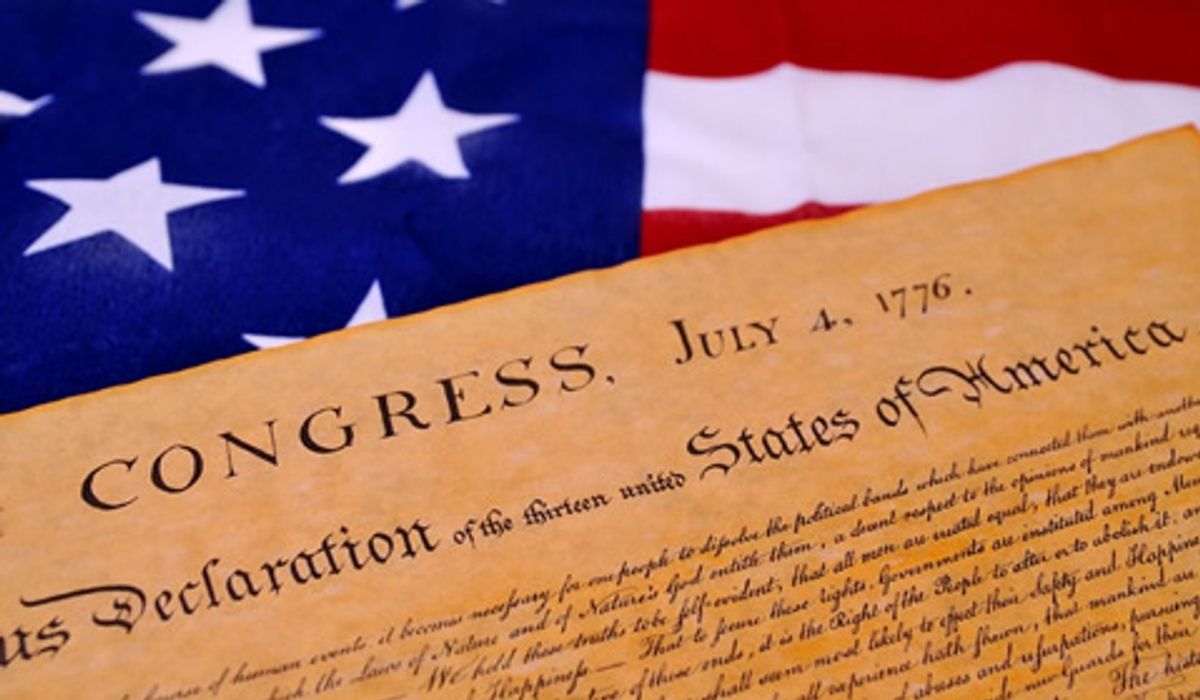


The “history wars” have heated up as more schools are debating whether America’s founding goes back to Independence Day in 1776 or to Virginia’s first Africans facing slavery in 1619.
A growing number of teachers have adopted or are reviewing Hillsdale College’s “1776 Curriculum” as a conservative alternative to the liberal “1619 Project,” which Hulu recently adapted for streaming. And some leading historians don’t like, either.
“I would steer clear of both curriculums,” David J. Silverman, a George Washington University colonial historian specializing in race and indigenous peoples, told The Washington Times. “Might I add that both do a terrible job of addressing American Indians?”
While the “1619 Project” teaches that institutional racism in the nation’s founding elevated Whites at the expense of Blacks, the “1776 Curriculum” stresses the equality and freedoms of all Americans.
As part of a broader K-12 classical education curriculum posted online, 73 schools have adopted Hillsdale’s free resource, which stresses primary sources.
At least 17 other school districts are reviewing the curriculum and tens of thousands of parents have downloaded it for homeschooling or tutoring, the Michigan-based Christian college said Friday.
“Americans, including the American founders themselves, have long believed the Declaration of Independence in 1776 to be our official starting point as a nation,” said Emily Stack Davis, a Hillsdale spokesperson.
More than 4,500 schools have used the “1619 Project” since New York Times journalists launched the Pulitzer Prize-winning series in August 2019.
On Jan. 24, Hulu debuted a six-part documentary based on the project, further popularizing the idea that the nation’s founding was based on the enslavement of Africans and anti-Black racism.
“The 1619 Project is patriotic in its commitment to Enlightenment values like liberty, equality, and freedom of speech and religion, and in its insistence that these natural rights be granted to all Americans,” Woody Holton, a historian at the University of South Carolina, said in an email.
The “1619 Project” received funding from The New York Times and the Pulitzer Center, which jointly launched the K-12 curriculum and has urged its adoption in public schools.
Hillsdale College’s “1776 Curriculum” has grown mostly through word of mouth.
Officials at the Pennridge School District in Bucks County, Pennsylvania, started reviewing the Hillsdale curriculum after abandoning a diversity, equity and inclusion initiative last year. They continue to test it this month as part of a curriculum review process.
“The Hillsdale resources, with their focus on primary sources, is one example of the many resources that are being considered for use,” Pennridge said in a statement to The Times. “It’s also important to note that, at this time, nothing from Hillsdale has been added to the Pennridge School District curriculum.”
The “narrow and ideological narrative” of 1619 sparked the pushback, said Phillip Magness, an economic historian at the American Institute for Economic Research in Massachusetts.
“The New York Times and Hulu have structured the series to only present a narrow and extremely ideological narrative of U.S. history, centered upon a very particular set of theoretical frameworks for looking at racial discrimination,” Mr. Magness said.
Mr. Magness and other historians have pointed out that slavery arrived in North America under the Spanish crown a century before a pirate ship brought the first Africans to Jamestown, Virginia, in 1619. And slavery did not exist in Virginia law until 1662.
“The underlying assumption of 1619 is historically correct, that racism is the original sin of American history and racism is its toxic residue,” said Joseph Ellis, a Pulitzer Prize-winning historian of the Founding Fathers. “The way they apply that insight is often historically inaccurate. The Africans who went to Virginia in 1619 were not enslaved because slavery was not legal at the time.”
Some historians have claimed Hillsdale’s curriculum distorts the nation’s founding from the other side of the ideological fence.
“All of these things raise important questions that need to be discussed, but the stuff coming out of Hillsdale is deeply politicized,” said James Grossman, executive director of the American Historical Association.
Mr. Grossman and others point out that Hillsdale’s initiative emerged from former President Donald Trump’s 1776 Commission, which sought to promote “patriotic education.” Hillsdale’s president, Larry Arnn, co-chaired the commission.
“It just feels to me that the 1776 project would rather not deal with 240-plus years of some of the most horrific, inhumane and brutal treatment that this country has ever known,” said Tyrone Howard, a UCLA education professor who specializes in racial equity.
Other recent conservative alternatives to 1619 take America’s founding back much further. Connor Boyack, creator of the “Tuttle Twins” book/TV franchise, published a children’s history book last year that starts in 1215 with England enacting Magna Carta as a precursor to the Declaration of Independence.
But 1776 is the only year that makes sense as the nation’s founding date, according to Peter Wood, president of the conservative National Association of Scholars.
“The United States literally began with the 13 colonies joining to declare both their independence from Britain and their solidarity with one another,” said Mr. Wood, a former associate provost at Boston University. “That happened in 1776, not in 1775, 1770, 1750, or any previous date including 1619.”
According to the nonprofit research center More in Common, most adults responding to surveys want American history classes to include aspects of both approaches.
“Our research has found that people want U.S. history taught in a way that both acknowledges our errors and celebrates our triumphs,” said Dan Vallone, U.S. director of More in Common.
• Sean Salai can be reached at ssalai@washingtontimes.com.
